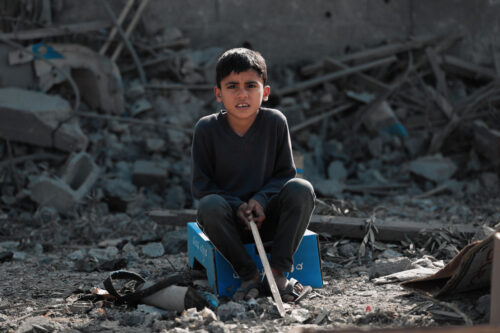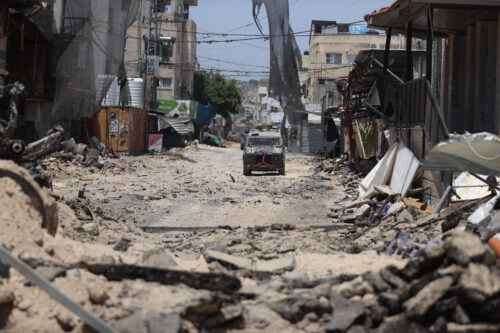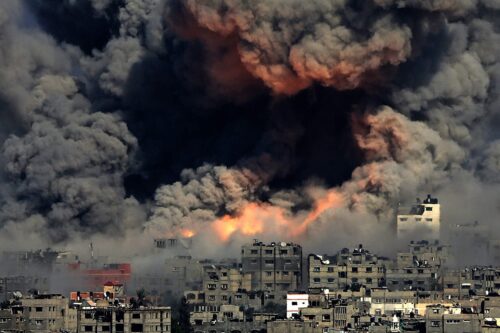[fusion_builder_container hundred_percent=”yes” overflow=”visible”][fusion_builder_row][fusion_builder_column type=”1_1″ background_position=”left top” background_color=”” border_size=”” border_color=”” border_style=”solid” spacing=”yes” background_image=”” background_repeat=”no-repeat” padding=”” margin_top=”0px” margin_bottom=”0px” class=”” id=”” animation_type=”” animation_speed=”0.3″ animation_direction=”left” hide_on_mobile=”no” center_content=”no” min_height=”none”]
What does Ramadan now mean for the people of Gaza?
Muslims around the world have entered into the holy month of
Ramadan. Waking up in the early hours (suhoor)
of the morning for a quick bite to eat and sip of water, to the waiting – date
in hand – for the final seconds to tick by until the call to prayer at sunset.
I could go on further and talk about the reasons for fasting,
the five pillars of Islam, Zakat (almsgiving), and perhaps the benefits of
refraining from food and drink. However, numerous articles and blogs will
address these important aspects throughout the month and I can’t help but feel there
is a more pressing issue at hand as Ramadan envelops upon us. That is, what does
Ramadan now mean for Palestinians? Or to be more exact, what does it mean for
Gazans?
Last summer’s ‘Operation Protective Edge’ saw more than 2,100
Palestinian deaths and thousands more injured. Switching on the news as soon as
I arrived home from work, I would await – a tightening knot in my stomach – coverage
of the latest Gaza updates, all the time hoping a ceasefire had been agreed. I
don’t know which was worse, the feeling of helplessness or the silent watching
of homes and lives destroyed. The rapid pace at which children were being
killed was enough in mounting my despair or maybe it was the bombing of UNRWA
shelters, a haven where thousands of families huddled together knowing they
would be safe from Israeli missile attacks. That is, until I watched the
reporting of the ‘Bakr Beach Boys’, where in the space of around 30 seconds,
four boys who had been playing hide and seek amongst fishermen’s shacks and
brightly coloured beach tents were dead.
However, as the smoke from the Israeli explosions thinned in
the Gaza sky, there were signs that Ramadan was still alive. For me, the men
praying amongst the rubble and under shadows of the fallen minaret of the
Al-Sousi mosque provided a glimmer of hope that Palestinian resistance had not
all but fallen.
I cannot say with certainty, nor do I really know, how the
people of Gaza feel about this summer’s Ramadan. Will they be waiting for the
final seconds to tick by until a warning pamphlet is dropped, only to be told
they have 5 minutes to evacuate before a missile destroys their home? Or maybe,
they are preparing for Iftar, deciding on Maqluba for tonight’s meal, setting
the table minus a family member or two.
What I can say, is the remnant of last summer’s assault on
Gaza remains present today. Does it seem the people of Gaza are expected to
accept that this is just another phase of their ongoing plight? As humans we
are made up of our memories and experiences and as every Ramadan arrives,
bringing its blessings, it will also bring echoes of trauma and loss. So as our
everyday lives move on, Palestinians must also work to move on, but always
under a shadow of insecurity and disadvantage.
Zoe, Interpal Projects
Assistant
[/fusion_builder_column][/fusion_builder_row][/fusion_builder_container]
Calculate your Zakat
Confused about how to calculate your Zakat? Try our simple-to-use calculator





